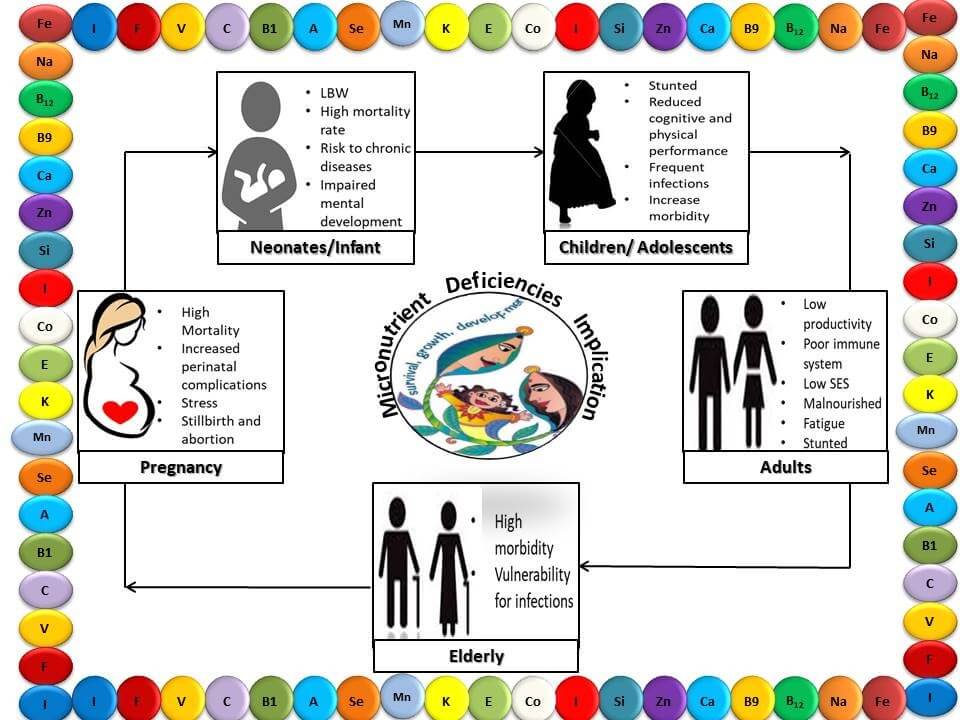Malnutrition refers to the deficiencies, excesses or imbalances in an individual’s intake of energy and/or nutrients. Presently, malnutrition remains the world’s major public health problem. Over-nutrition (overweight and obesity), under-nutrition, and micronutrient (vitamins and minerals) deficiencies are different forms of malnutrition that influence people across the globe.
Preventing malnutrition in all its forms, including micronutrient deficiencies (MND’s) remains one of the greatest global public health challenge. Micronutrient malnutrition is expressed as micronutrient deficiencies or it’s excess. MND’s indicated as “hidden hunger” are responsible for higher morbidities and mortality rates throughout life stages). Deficiencies of iron, iodine, vitamin A, vitamin D, folic acid, vitamin B12 and zinc are primary causes of MND’s.
The prevalence of MND’s is influenced by several socio-cultural, socio-economic and socio-demographic variables. Examples of such variables include age, gender, family size, number of siblings, birth order, birth intervals, maternal health status, maternal age, maternal BMI, maternal employment, time of initiation of breastfeeding to infants, maternal education, residence, ethnicity and family income. Adequate intakes of micronutrients are essential for maintaining overall health throughout life. A prolonged, inadequate intake of essential micronutrients leads to MND’s that adversely impact health at all life stages.

Maternal nutritional status directly influences the child's nutritional status and poses intergenerational effects (fig 1). The mother with poor nutritional status gives birth to a low birthweight baby who grows up as an undernourished child with poor nutrient stores to meet the higher demands of growth and development, and later an unhealthy adolescent with chronic undernutrition. Further, as an adult woman with poor nutritional status she enters gestation less prepared physiologically, which leads to poor pregnancy and birth outcomes. Maternal and child MND’s causes stunted growth, cognitive delays, weakened immunity, unacceptable high morbidity and mortality in children, especially under 5 years of age.
MND’s during adolescents causes decrease in growth spurt for physical as well as mental health and performance, finally effecting the economic development of nation. An adult with MND’s displays less working capacity, low productivity and low socio-economic status. Adequate micronutrients intake is important in elderly population as MND’s poses risk to high morbidities, mortality and many age related disorders such as cardiovascular diseases, cancers, diabetes, coeliac disease, immune dysfunction and Alzheimer’s disease. Thus, prevention of micronutrient deficiencies is key to its successful management at all stages of life cycle and major contribution to reduce the burden of diseases globally.